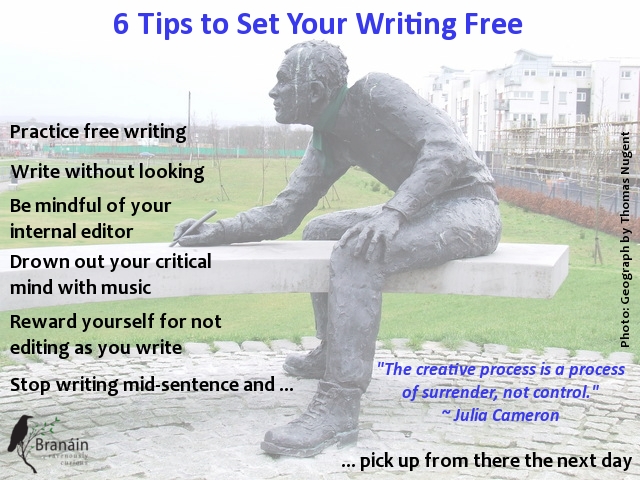If you are a writer, artist, or other creative professional, there’s probably a war going on in your mind.
No, it’s not a battle between writing every day and watching movies on your computer.
It’s a battle for control of your creativity … the very soul of your writing or art.
On one side is your creative self. This childlike part of your mind comes up with great stories, gives you amazing insight into the world around you, and lets you mix ideas into something new and wonderful.
On the other side is your critical mind. In spite of its name (“critical” gets such a bad rap these days), this part of your mind is just as important as the creative side. Your critical mind helps you get stuff done by putting your life in order, setting up your schedule so you sit down to write, and fixing the mistakes that the creative mind just doesn’t seem to care about.
 While the critical mind is useful, it also tends to be more assertive than your creative self. Sometimes, too assertive. At times, the critical mind takes over the process while you are trying to write. This often ends with you editing as you write.
While the critical mind is useful, it also tends to be more assertive than your creative self. Sometimes, too assertive. At times, the critical mind takes over the process while you are trying to write. This often ends with you editing as you write.
So instead of writing a novel in a few years, or a short story in a week, you are lucky to produce one sentence a day.
The solution to this problem isn’t to ban the critical mind forever. It’s all about balance. You have to negotiate a truce between the two sides of your mind. Over time, they will learn to live together. Once relations are normalized between them, you’ll find that you are able to create better and more consistently.
Here are six tips to help you set your writing free. As with most things related to creativity, these may not all work for you. Try them out for a few weeks. If they work, add them to your creative toolbox. If not, feel free to discard them.
What worked for you? Do you have other ways to write more freely and creatively?
Practice Free Writing
Free writing doesn’t mean that you work without getting paid. It’s the first step in setting your creative mind free. To start, try writing for 20 minutes a day as quickly as you can. I like to do this longhand in a journal (something highly recommended by Julia Cameron), but you can always do it on a computer if you prefer. Don’t worry about the quality of the writing (you may never look at it again). The goal of this exercise is to let your mind wander and to plug your writing back into that bottomless source of creativity.
Write Without Looking
By not looking at what you’re writing, you deprive your critical mind of its fuel. It’s very difficult for your internal editor to take over if it can’t see the words on the computer screen. Try turning off your monitor or draping a towel over it. And you might as well tape over the delete key–your critical mind will try to use that to fix “mistakes” as you write.
Be Mindful of Your Internal Editor
The internal editor is sneaky. It lulls you into a false sense of security, telling you that your writing will be better if you give it control. Many times, though, you won’t even notice when your internal editor takes over (until you read your writing later and it falls flat). To become more aware of your internal editor, acknowledge when it has asserted itself. You can even say to yourself, “editing,” every time you have slipped mindlessly into editing mode. This will help you become more mindful of your internal editor.
Drown Out Your Critical Mind With Music
The critical mind likes order. Sometimes distracting it (or drowning it out) with music or noise can paralyze it. This gives your creative mind free range to sing and dance and write. Try listening to classical music or other music without words. You can also put a loud clock or timer on your desk. This has the double effect of drowning out your critical mind and reminding you to keep writing.
Reward Yourself for Not Editing as You Write
It’s not easy to turn off the internal editor when you are working on a first draft. You deserve to be rewarded for your effort. Set a goal for writing without editing. Start with something attainable, like 10 or 15 minutes. You can increase it from there. Choose a reward beforehand, something that will motivate you to keep going, maybe checking your Facebook page or walking outside.
Stop Writing Mid-Sentence
Not only does the critical mind love order, it loves completion. When you stop working for the day, don’t lose your creative momentum. Stop your writing mid-sentence. Before you shut down your computer, copy that last sentence fragment to a new document. The next day, read that fragment and start writing from there. This will prevent you from going back to edit what you have previously written. It also may lead you in new–and unseen–directions.
__________
Photos



